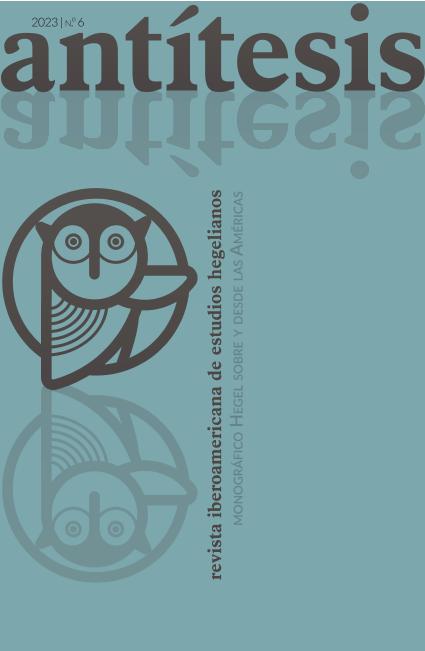Artículo
Hegel considera que América es un continente nuevo «en lo que respecta a su entera constitución física y espiritual». Con esto reproduce una imagen crecientemente dominante en el ambiente intelectual de la Europa de su época. Dicha imagen surge y cristaliza en el marco de consolidación de los procesos de colonización. Los pueblos de las regiones colonizadas mostraban en opinión de los observadores europeos un desarrollo civilizatorio menor que el de Europa. No pocos intelectuales encontraron la explicación a esas diferencias culturales en las diferencias naturales de la geografía, el clima y las razas respectivas. En este contexto, los indios americanos son a ojos de Hegel pueblos sin historia; en cuanto a la historia de América tras su conquista y colonización no es más que un episodio de la propia historia europea. En la medida en que es a través de la historia europea como el ser humano habría alcanzado la autoconciencia de su esencia, a saber: la libertad como autonomía y autodeterminación, Europa parece señalar una suerte de non plus ultra del desarrollo ideológico de la Humanidad. Sin embargo, vista en retrospectiva desde el siglo XXI la historia intelectual y política europea difícilmente permite ser identificada con la plena concientización del valor y dignidad que tiene cada ser humano como tal. Desde el momento que sus diferentes países es-tán fundados sobre el principio del nacionalismo cívico y no sobre el del nacionalismo étnico, propio de los países de Europa, el continente americano señala en este respecto un progreso en relación al «principio del espíritu europeo». By treating America as a «new» continent «by virtue of its wholly peculiar character in both physical and political respects» Hegel reiterates the increasingly dominant image of America in the Europe of his time. This image crystallized in the context of the consolidation of the colonization process. According to Europeans, the inhabitants of the colonized lands were far less civilized than the inhabitants of Western Europe. Not a few thinkers found the explanation for that cultural difference in the natural differences between the respective geographies, climates and races. In this general framework, Hegel considered the American Indians as people without history; as for the history of America after its conquest and colonization, it is in his eyes nothing other than an episode of the history of Europe itself. Insofar as it is through Europe´s history that human beings have attained self-consciousness of their essence, namely, freedom as autonomy and self-determination, Europe seems to be a non plus ultra of the ideological development of humanity. However, as seen from the perspective of the 21st century, the intellectual and political history of Europe can hardly be identified with the full awareness of the value and dignity of each human being as such. Since the countries of the American continent rely on the principle of civic nationalism and not on that of ethnic nationalism, which is typical for Europe, they signify, in this respect, a step forward with regard to the «principle of the European mind».
¿Ha sido el continente americano "la tierra del futuro"?: Hegel y las Américas doscientos años después
Título:
Has the American Continent been “the Land of the Future”?: Hegel and the Americas two hundred years later
Fecha de publicación:
12/2023
Editorial:
Universidad Autónoma de Madrid
Revista:
Antítesis
ISSN:
2735-7090
e-ISSN:
2792-436X
Idioma:
Español
Tipo de recurso:
Artículo publicado
Clasificación temática:
Resumen
Archivos asociados
Licencia
Identificadores
Colecciones
Articulos(SEDE CENTRAL)
Articulos de SEDE CENTRAL
Articulos de SEDE CENTRAL
Citación
Ferreiro, Hector Alberto; ¿Ha sido el continente americano "la tierra del futuro"?: Hegel y las Américas doscientos años después; Universidad Autónoma de Madrid; Antítesis; 6; 12-2023; 63-104
Compartir




